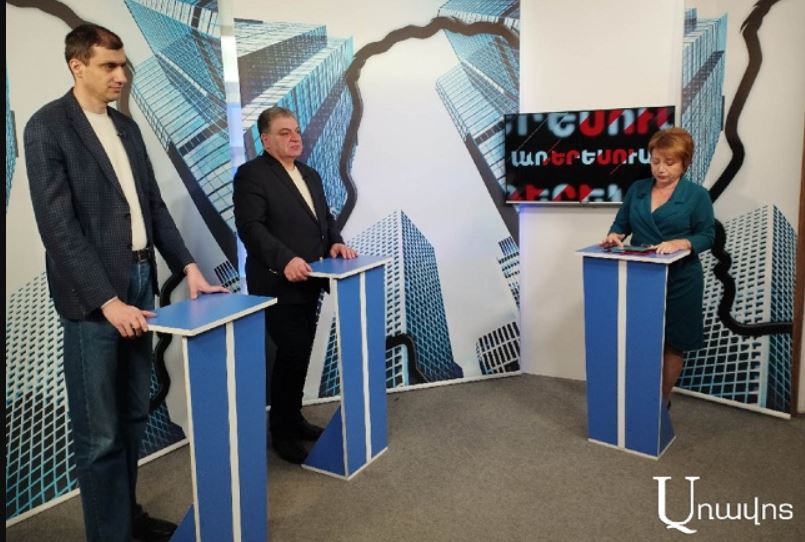Representatives of Artsakh and Azerbaijan met with the participation of the command of the Russian peacekeeping force, and agreements were reached on the restoration of electricity and gas supply in Nagorno- Karabakh. Negotiations on restoring the unhindered movement of vehicles through the Lachin Corridor are ongoing.
Earlier, the RPA Vice-Chairman Armen Ashotyan made public a text which, according to him, was negotiated in Munich with the mediation of the US Secretary of State and which also talks about the logic behind the contact between Stepanakert and Baku. “Baku will immediately start a structured dialogue with the designated representatives of Karabakh Armenians to guarantee a mutual understanding of their rights and security.”
In Yerevan on February 22, the Minister of Foreign Affairs of Armenia Ararat Mirzoyan also stated that “in Munich, we received the readiness and assurance of the Azerbaijani side that the internationally visible dialogue between Baku and Stepanakert should take place.”
To the question of whether this meeting is precisely what was negotiated in Munich, the guest of Aravot’s “Areresum” (“Confrontation”) program, former Secretary General of the Foreign Ministry, Ambassador Extraordinary and Plenipotentiary Vahagn Melikyan, answered: “I am not inclined to think that these are fundamental arrangements. These are more like some smokescreen, underwater processes, and developments, which, unfortunately, are not available to the broad masses of the Armenian society, nor, I think, to the expert circle.” According to Vahagn Melikyan, any prerequisites and requirements of Azerbaijan are being fulfilled now, and no one is guaranteed that there will be no new prerequisites tomorrow. “Now, if they opened the Lachine Corridor… God help they open it a day earlier, a second earlier; where is the written guarantee that it will not be closed the next morning?”
Read also
The other program guest, Mesrop Arakelyan, Advisor to the former Minister of State of Artsakh, Ruben Vardanyan, co-founder of the “Aprelu Yerkir” party, noticed earlier. “Ruben Vardanyan’s path of struggle also meant living side by side with Azerbaijan, but the negotiations and discussions had to be between the two entities. In yesterday’s negotiations, similar problems arose before Vardanyan was there. Azerbaijan continued its anti-Armenian policy even after 2020. In some episodes, negotiations have been related to humanitarian or infrastructural issues.”
According to Mesrop Arakelyan, the reason for such actions in recent days in Azerbaijan is as follows. “After the decision of the Hague Court, which Azerbaijan had to face and find a solution, now they will try to use Ruben Vardanyan’s departure as an excuse that they will open the way one day as a result of the fulfillment of their demand and not international pressure. Indeed, the Court’s decision was one of the most important records of the struggle. The release of Ruben Vardanyan a day after that seemed to have left the struggle unfinished because this could become a significant precedent that it was thanks to the struggle of Artsakh and the Armenian people that the opening of the road took place and not demands of Azerbaijan”.
Anna ISRAYELYAN




















































